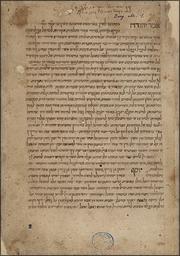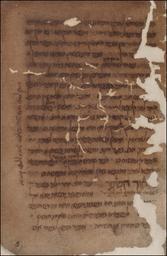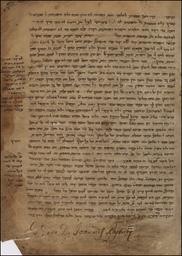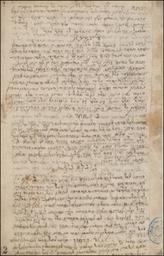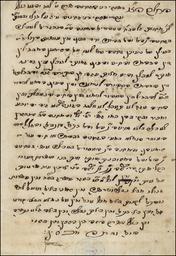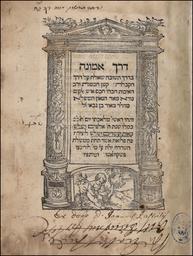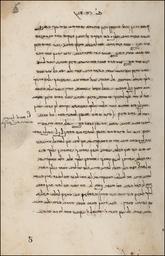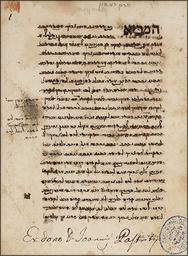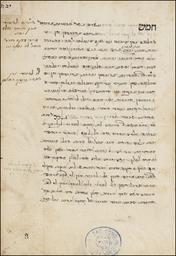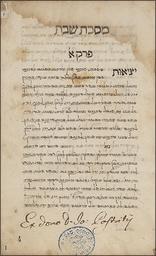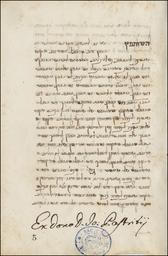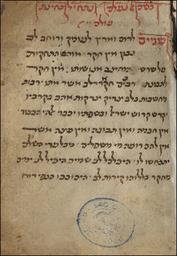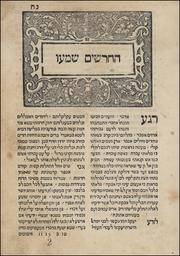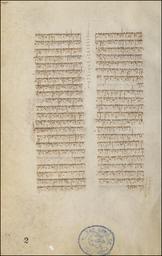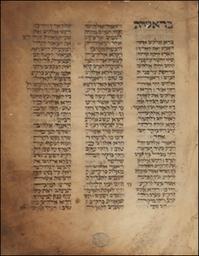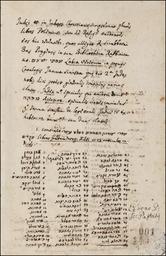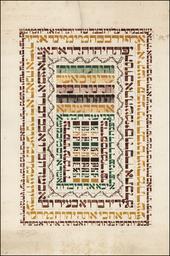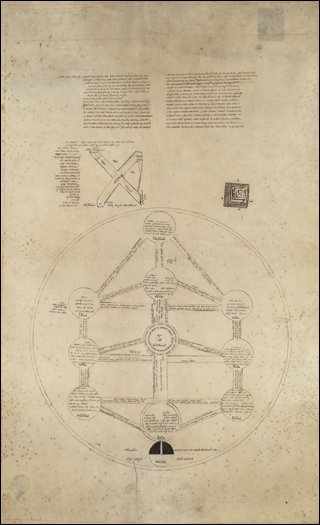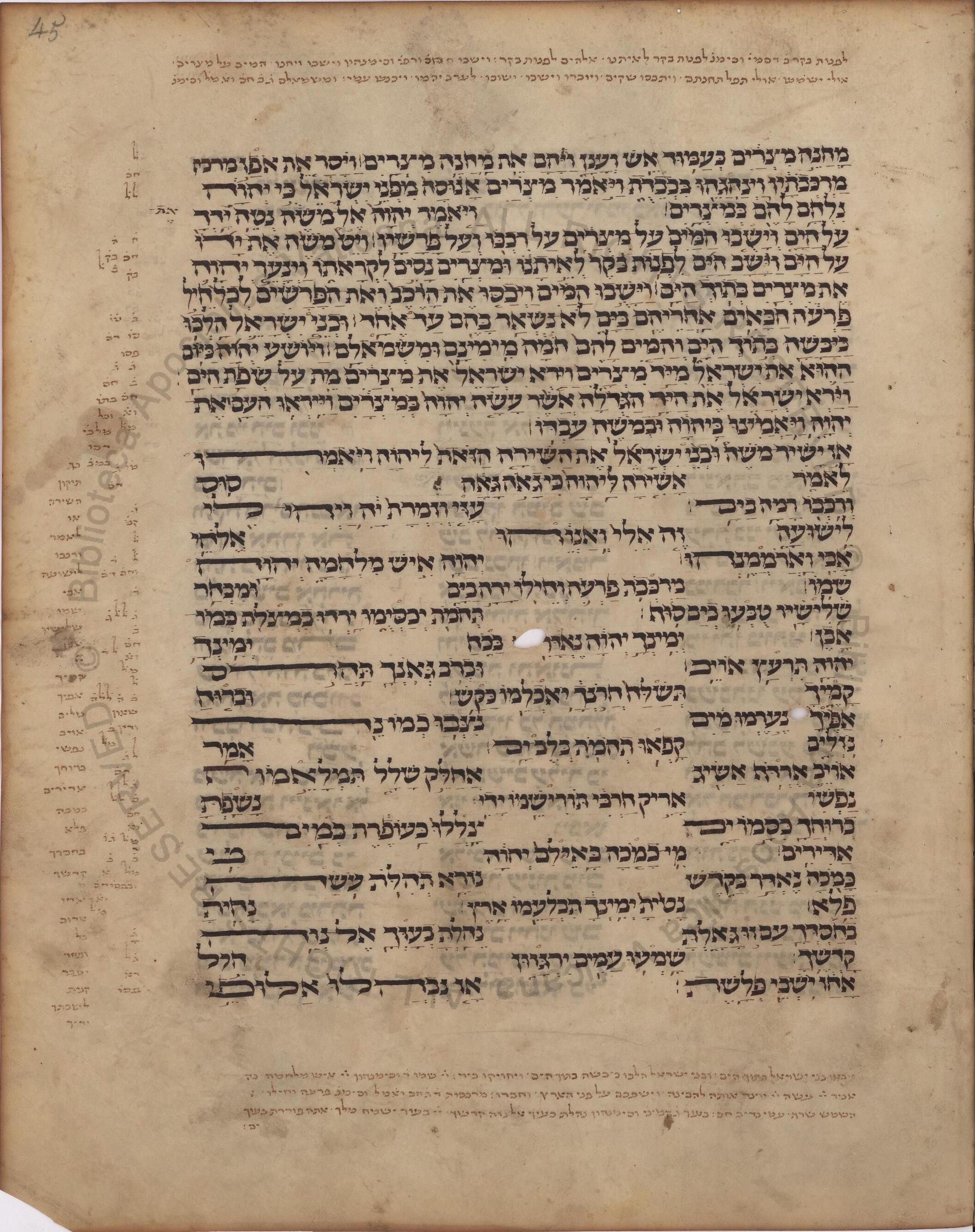Scribe: Ephraim b. Joab b. Moses da Modena, done for Mordecai b. Benjamin the physician. Ff. 76-77 are not by him
Sephardic semi-cursive. Anonymous translator from the Arabic of the Viaticum into Hebrew
stops at Shabbat 81a. Minute Ashkenazic semi-cursive.
single scribe in Italian cursive script.
Italian cursive. Text on the laws of Schehitah (Kosher butchery)
Two unrelated works bound together. Ff.1-110 is Abridgement of Moses Cordovero's Pardes Rimmonim, scribe: Hananel Hayyim b. Jacob Sforno. He signs on both f.1r and f.110r
Italian semi-cursive, part of a large collection of the Code by same scribe or scribes, Borg.ebr.7–12.
Italian semi-cursive, part of a large collection of the Code by same scribe or scribes, Borg.ebr.7–12.
Italian semi-cursive, ff.1-97 are part of a large collection of the Code by same scribe or scribes, Borg.ebr.7–12. Ff. 98-208 is a second, less cursive, hand
Italian semi-cursive, part of a large collection of the Code by same scribe or scribes, Borg.ebr.7–12.
Italian semi-cursive, part of a large collection of the Code by same scribe or scribes, Borg.ebr.7–12. This scribe is the same as Borg.ebr.10 ff. 98-208, excepting ff.4r-23r, a scribe unseen elsewhere in this collection
Italian semi-cursive
Provençal semi-cursive, some bits of the text are in Judeo-Provençal. Collection of parodies for Purim Ff.1-72 are a pair of printed books bound before the manuscript
Sephardic caligraphic semi-cursive. Includes the weekly parsha indication for the Sephardic rite. Page was ruled for Masorah Magna, but it was never added.
Ashkenazic square script. Main scribe: Hayyim son of the martyr Isaac, Masorah was added by 2 additional hands. Includes a 16th and 17th C censor note
